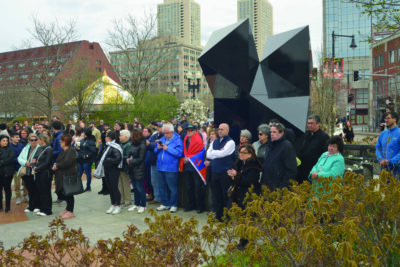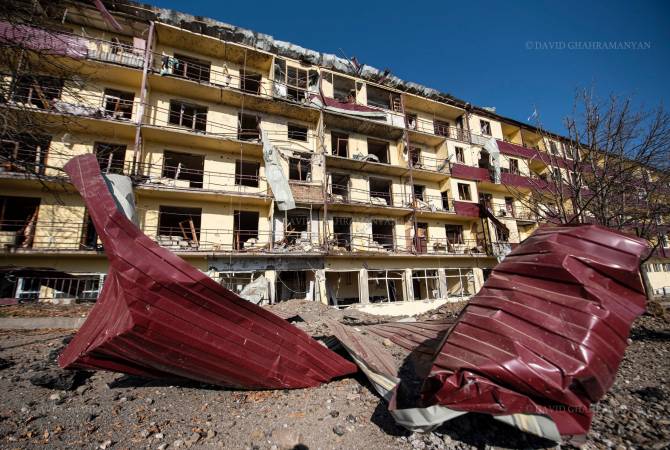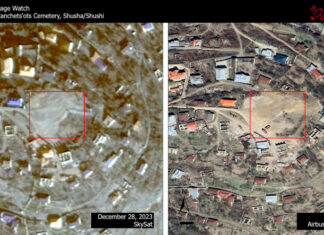STEPANAKERT (Combined Sources) — The war in Artsakh (Karabakh) has shown no signs of slowing down, despite the declaration of a third cease fire earlier in the week, following the meeting of the Armenian and Azerbaijani foreign ministers in Geneva.
The Azerbaijani use of cluster bombs has destroyed huge chunks of Shushi and Stepanakert, including the latter’s central market.
Throughout the evening of November 3 the Azerbaijani air force bombed Martuni, Shushi was bombarded, and the Shahumyan region’s residential areas with PC30 missiles.
The shelling again has extended into Armenia.
One civilian was killed and several others were injured in Azerbaijan’s shelling of the village of Davit Bek, Syunik Province in Armenia, Defense Ministry spokeswoman Shushan Stepanyan said Monday, November 2.
“Today, at around 6:10 p.m., the Azerbaijani side opened artillery fire in the direction of the positions of the Armed Forces of Armenia and the settlement of Davit Bek, as a result of which one civilian was killed and two others were wounded,” Stepanyan said on Facebook.










